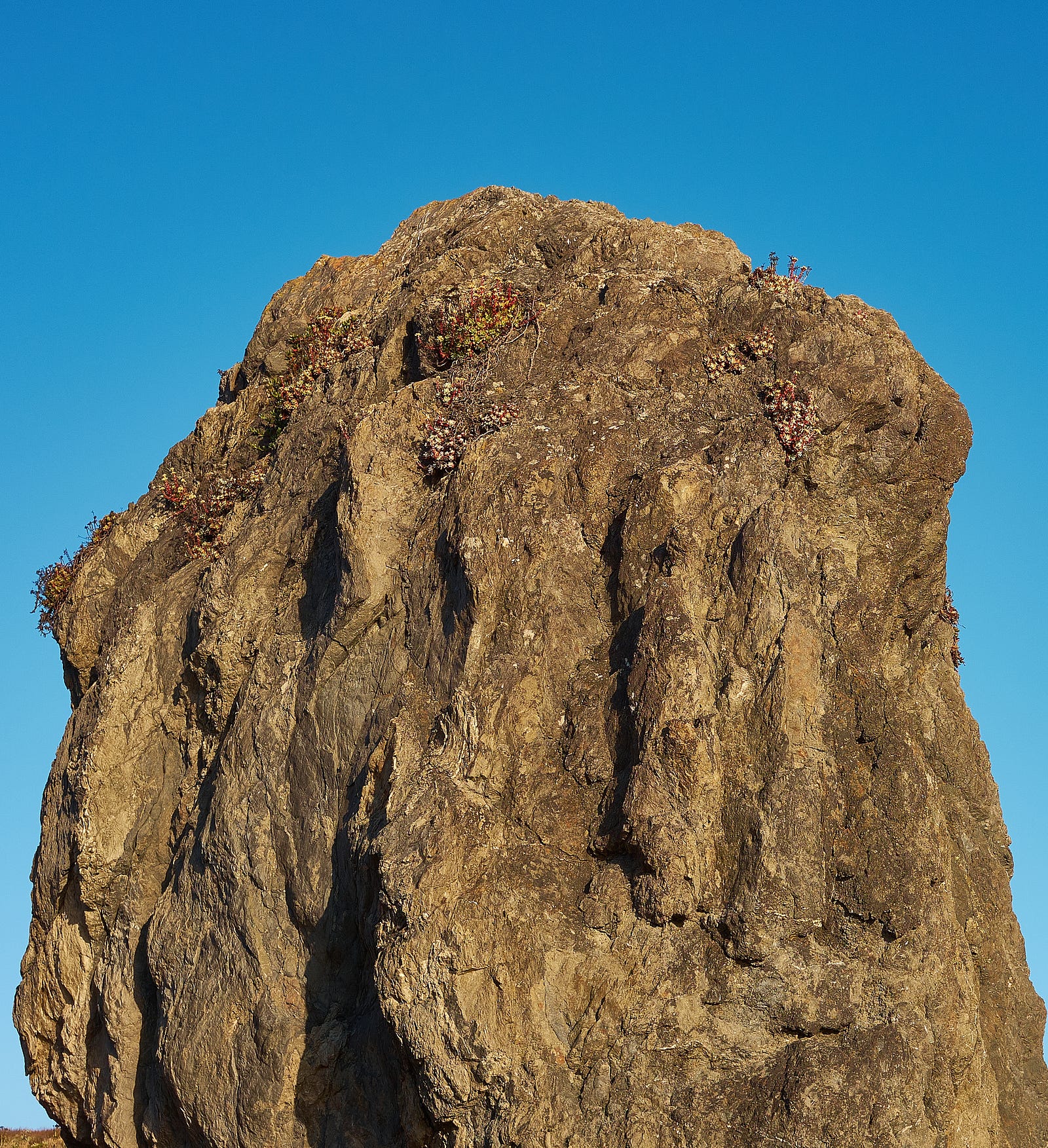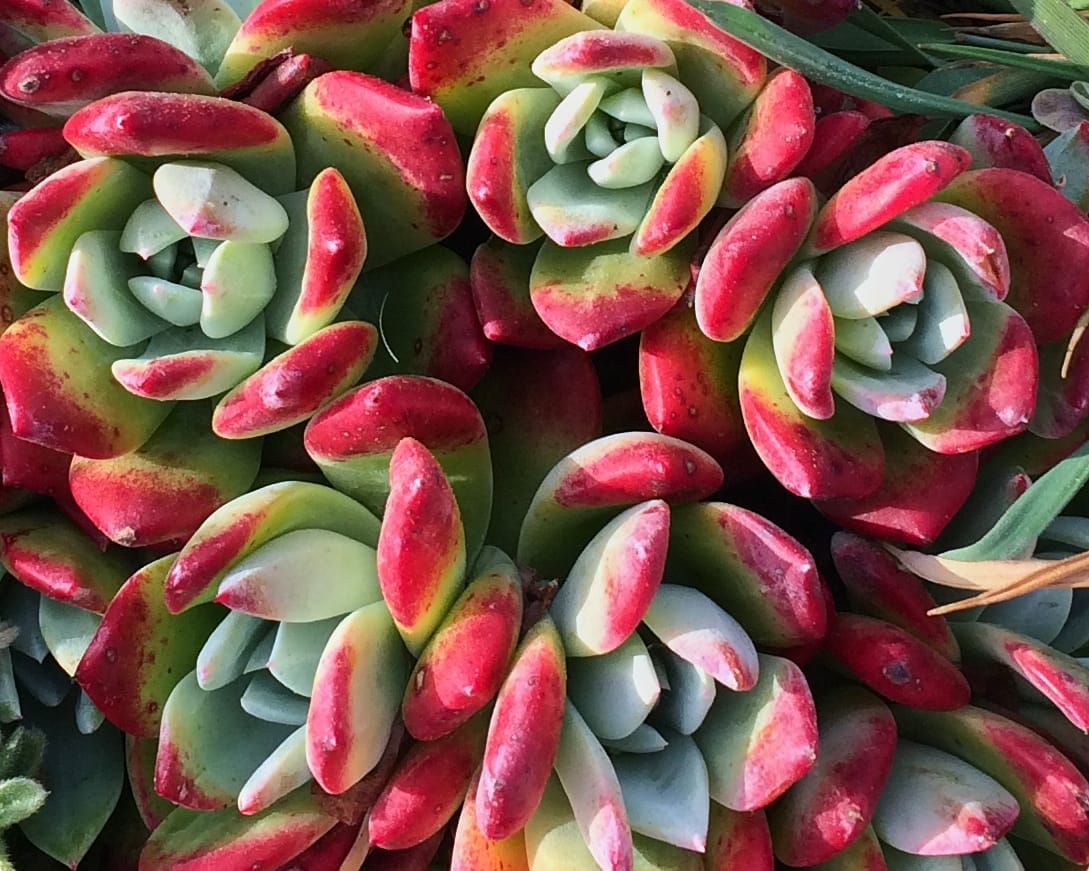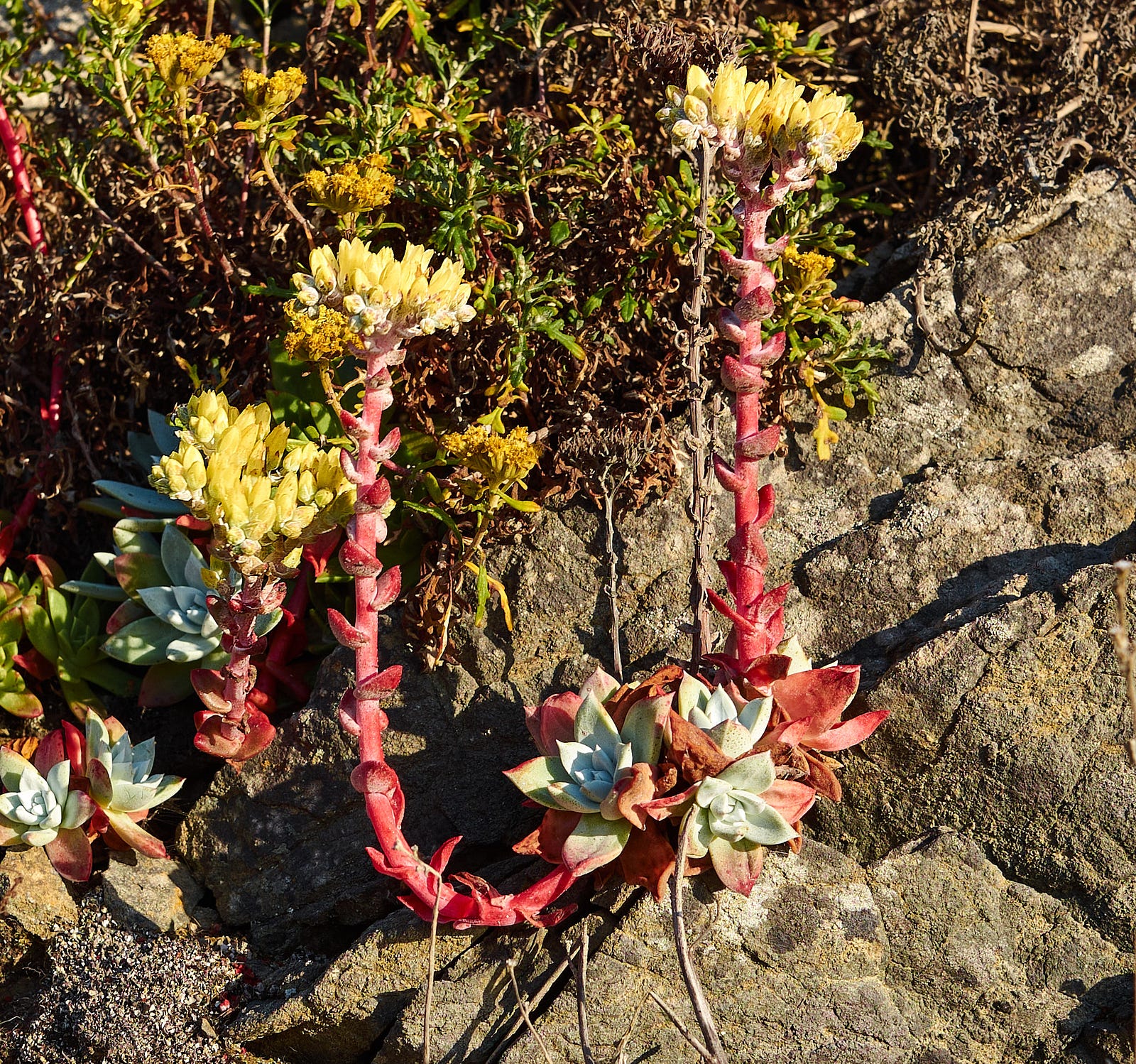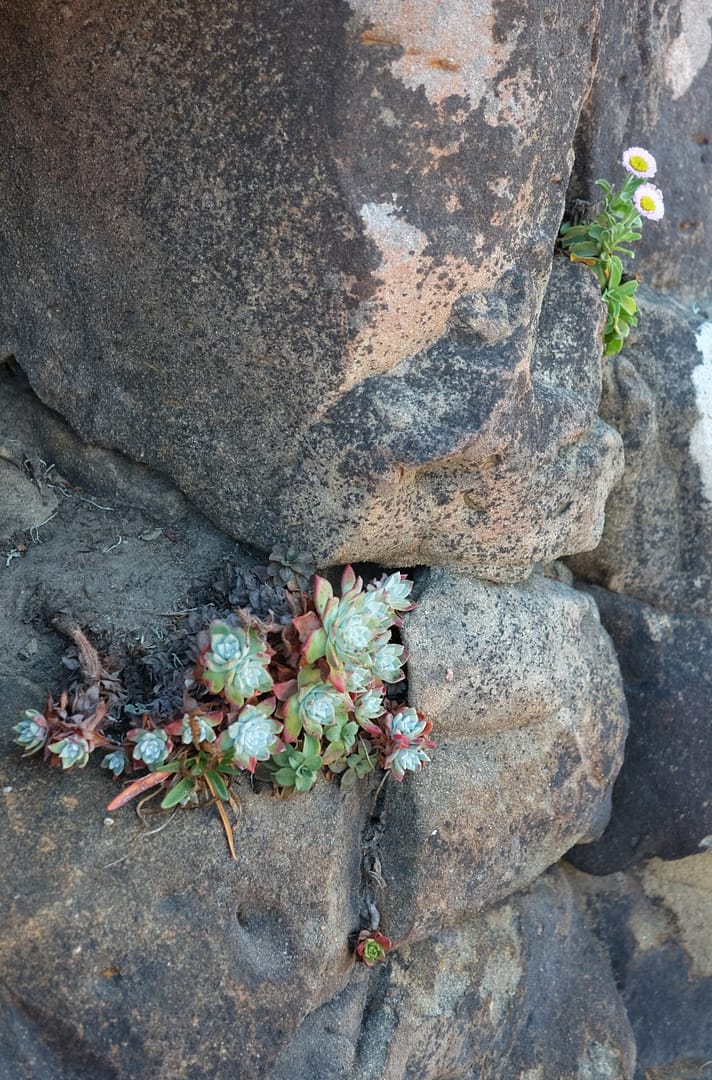At first glance, you wouldn’t think they’d be the type to get involved in an international criminal enterprise – so tidy and plump and innocent, dressed in vibrant Christmas colors. Little things, just minding their own business. Cheerful, even.
But, even in the plant kingdom, looks can be very deceiving.
At first, no one could imagine such a bold, audacious crime could happen.
But when the investigation ended last year, tens of thousands of these wild rockers were behind bars, locked up in warden’s custody.
Dudleya farinosa. Kingpin of a global smuggling operation.
The raw naked coasts of California are tough places to live, and the few natives who manage to survive here have to be just as tough. They aren’t like their inland peers. At the edge of the sea the savage sun beats down hot and unrelenting, enough solar radiation in a day to burn and kill unprotected human skin.
And even though the nearby surf is wet, it offers no water worth drinking — it’s toxic with salts, and the relentless rough pounding on rocks and sand throws corrosive salty mists over anything left out exposed.
And these succulents live out in the open, with no shelter, year round. What little dirt there may be for subsistence is shallow, left in pockets and cracks, and hotly contested. Here, the treeless landscape is almost entirely rock, either solid or pulverized.
Then there’s the wind — the ever present, drying, tearing wind, driven from thousands of miles away and straight into these exposed seaside barrens.
Anything that tries to grow up in this sliver of extremes grows up tough, and either adapts and survives, or loses it’s place to something tougher.

Around here, the locals call the Dudleyas ‘live-forevers’, because they’re some of toughest, rugged survivors on the entire coast. They tend to keep to themselves, in places others wouldn’t dare to go.
Stories are told of captives, hauled away on ocean voyages back to Europe, which, to everyone’s amazement, survived long months at sea without any water, without soil. Tough customers.



